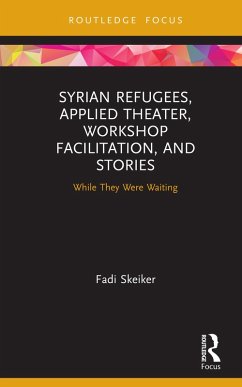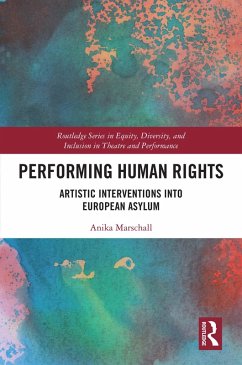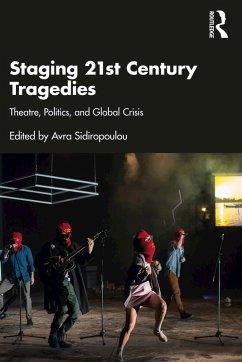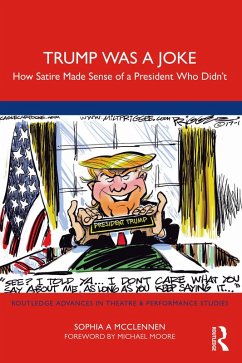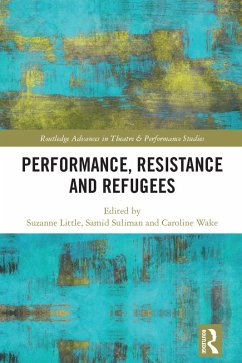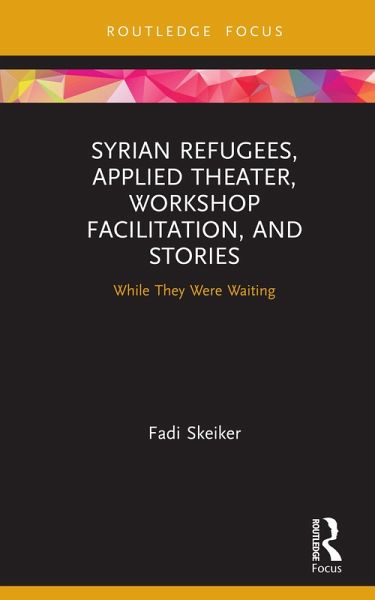
Syrian Refugees, Applied Theater, Workshop Facilitation, and Stories (eBook, PDF)
While They Were Waiting
Versandkostenfrei!
Sofort per Download lieferbar
21,95 €
inkl. MwSt.
Weitere Ausgaben:

PAYBACK Punkte
11 °P sammeln!
This book analyzes and theorizes the e¿cacy of using applied theater as a tool to address refugee issues of displacement, trauma, adjustment, and psychological well-being, in addition to split community belonging.Fadi Skeiker connects refugee narratives to the themes of imagination, home, gender, and conservatism, among others. Each chapter outlines the author's applied theater practice, as a Syrian, with and for Syrian refugees in the countries of Jordan, Germany, and the United States.This book will be of great interest to scholars, students, and practitioners of applied theater studies and...
This book analyzes and theorizes the e¿cacy of using applied theater as a tool to address refugee issues of displacement, trauma, adjustment, and psychological well-being, in addition to split community belonging.
Fadi Skeiker connects refugee narratives to the themes of imagination, home, gender, and conservatism, among others. Each chapter outlines the author's applied theater practice, as a Syrian, with and for Syrian refugees in the countries of Jordan, Germany, and the United States.
This book will be of great interest to scholars, students, and practitioners of applied theater studies and refugee studies.
Fadi Skeiker connects refugee narratives to the themes of imagination, home, gender, and conservatism, among others. Each chapter outlines the author's applied theater practice, as a Syrian, with and for Syrian refugees in the countries of Jordan, Germany, and the United States.
This book will be of great interest to scholars, students, and practitioners of applied theater studies and refugee studies.
Dieser Download kann aus rechtlichen Gründen nur mit Rechnungsadresse in A, B, BG, CY, CZ, D, DK, EW, E, FIN, F, GR, HR, H, IRL, I, LT, L, LR, M, NL, PL, P, R, S, SLO, SK ausgeliefert werden.




